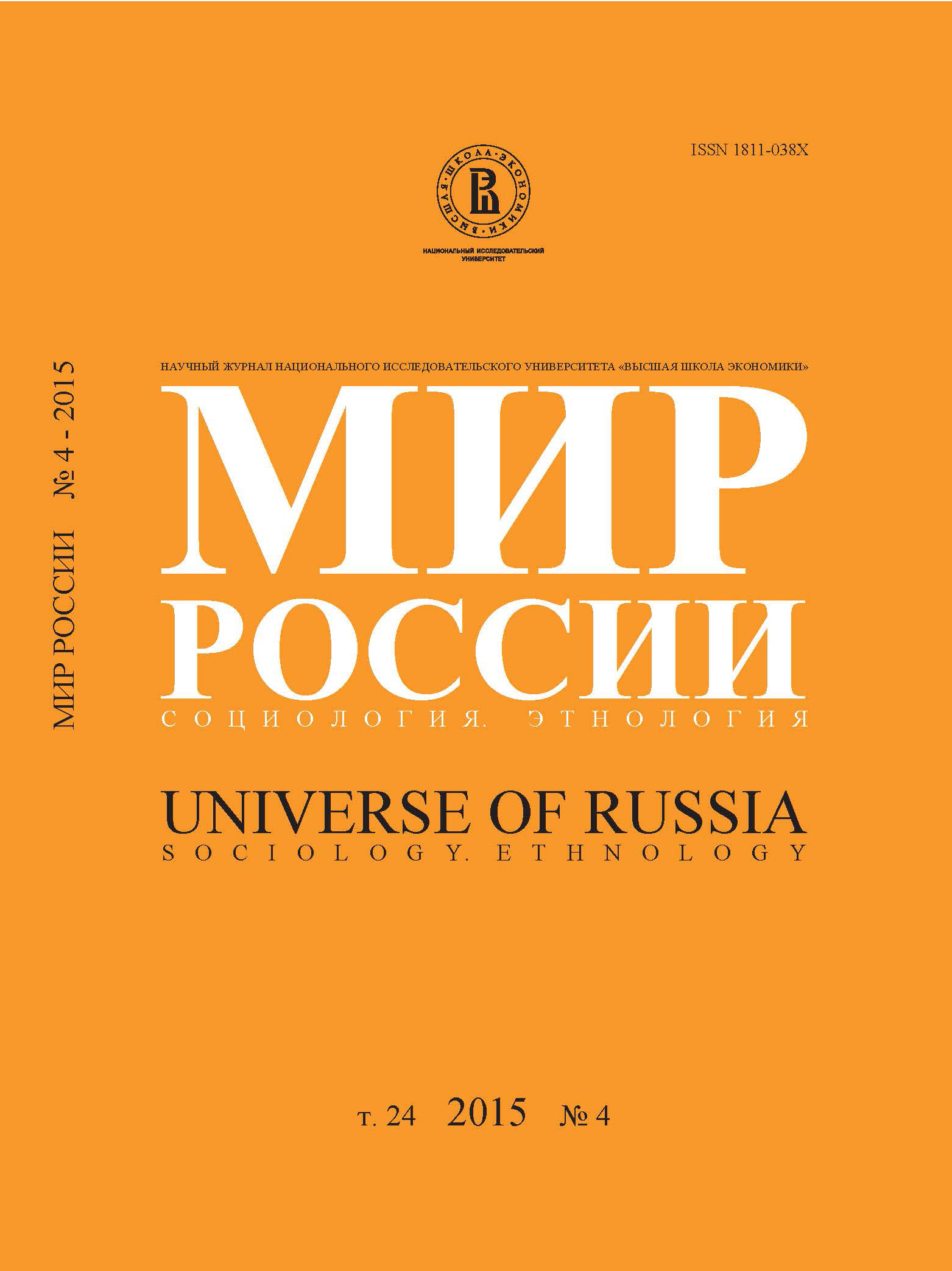Social Institutions, Mobility and Social Justice: the Results of a Study
Abstract
Mikhail Chernysh – Doctor of Sciences, Head, Sector for Social Mobility, Institute of Sociology of RAS. Address: bld. 5, 24/35, Krzhizhanovskogo St., Moscow, 117218, Russian Federation. E-mail: che@isras.ru
This article contributes to the debate on social justice in Russian society. Currently this debate revolves around the role of Russian culture, which is often claimed to preserve the traditions of egalitarian distribution. The findings from an all-Russia survey cast doubt on this assumption, revealing a plurality of interpretations of social justice—from the concept of justice as direct action to the concept of justice as a procedure based on law. The proportion of Russians who share egalitarian values is small. The majority of the population perceives the principle of justice as the strict implementation thereof by authorities, the population, employers and employees.
Vignettes were used in order to gauge the reactions of Russians to situations where different interpretations of justice may be encountered. The findings reveal that the key problem is the gap between the macro and micro perceptions of justice. General macro principles rarely agree with practices taking place on a micro level. At this micro level interactions often resemble the rules of private ad hoc contracts, in which more resourceful groups preserve certain privileges.






